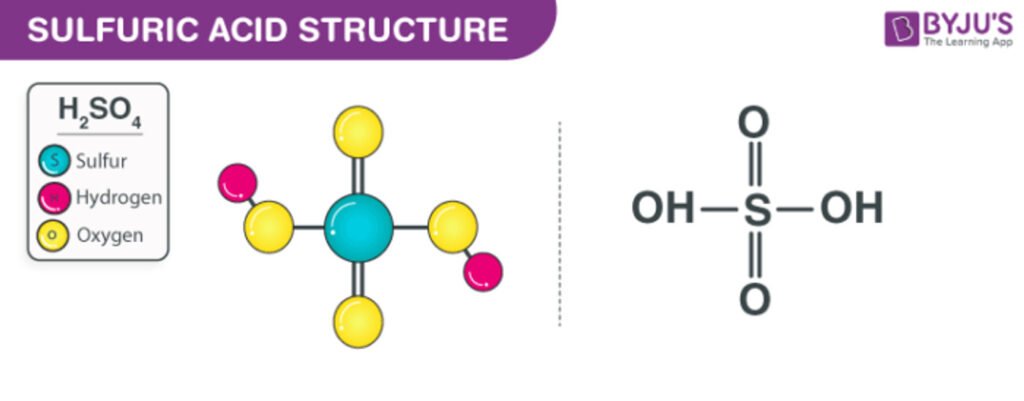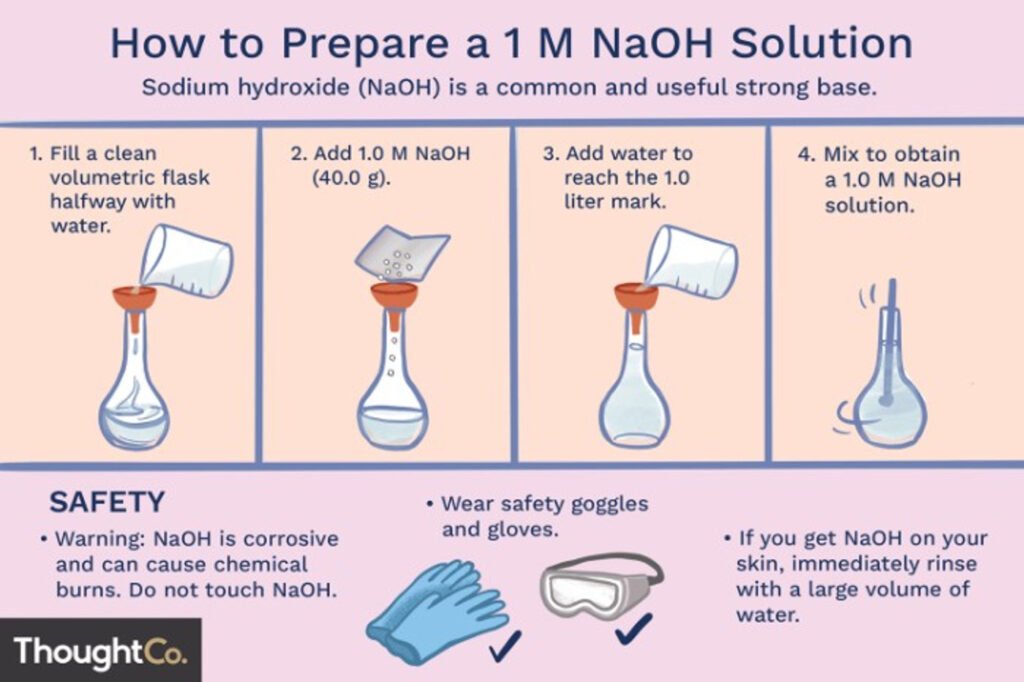Drains are a fact of life, but unfortunately, they are also a necessary evil! When drains clog up, it can be an absolute nuisance and cause serious inconvenience. Never fear, though; when it comes to finding the best acid for clogged drains, you need to look no further. As acids are known to destroy organic matter like greases and dirt buildup, they can be an effective first-line solution to unclogging your drains. Different types of acids will vary in their effectiveness and bio-reactivity, so it is well worth researching your project’s best options before you start. Getting unclogged with the right choice of acid should take little time, so here’s hoping your new plumbing project will turn into a sinkhole!
Common Acid Used By Plumbing Companies To Unclog Sewers
Hydrochloric Acid
Hydrochloric acid, or HCl as it’s usually referred to, is one of the most valuable acids used in plumbing and engineering today. Just about every plumbing company has it on hand and uses it to combat clogged sewers and broken pipes. Hydrochloric acid is considered a ‘strong’ acid that can erode practically any material it comes into contact with – meaning there’s no mess too harsh for this powerful chemical compound.
Hydrochloric Acid applications

In terms of application, however, knowledge about how much hydrochloric acid should be used for different purposes is critical. Too little means the clog won’t go away; Too much could permanently damage pipes and other equipment near the immediate area. In addition, even if you dispense the precise amount of controlling its flow, it can be tricky since it needs to be manipulated carefully as a highly corrosive agent. All these factors must be considered whenever this chemical is used as a cleanser.
Safety
- Safety measures should always come first when dealing with hydrochloric acid, which produces potentially explosive gas hydrogen chloride gas when dissolved in water (HCl + H2O).
- Furthermore, any solvents containing hydrochloric acid must be kept far away from naked flames and stored correctly at all times — something significant, bearing in mind its potential dangers.
- In addition, protective gear must also be worn while using it since direct contact with skin can cause irreparable damage and even respiratory disease over time if inhaled in large dosages.
Despite its often hazardous properties, hydrochloric acid is the plumber’s go-to agent for clearing clogs. Used in the right way with intense caution and attentiveness, this powerful chemical can quickly and effectively resolve any blocked pipes or drains – saving you time, stress, money…and health problems!
Sulphuric Acid

Sulphuric acid may not be the most common household item, but when used by plumbing companies to unclog sewers and drains, it can be a real lifesaver. As one of the most potent acids available, sulphuric acid has significantly impacted plumbing solutions in recent years. From clogged pipes to malfunctioning septic tanks, this chemical composition has become essential for many businesses in the industry.
Sulphuric Acid applications

A sulphuric acid is a handy tool for plumbers – its ability to break down grease and limescale is unmatched. Its reactive nature makes it ideal for dissolving substances that could cause blockages in domestic and commercial drainage systems.
During the chemical drain cleaning process, trained plumbing professionals use highly diluted solutions of sulphuric acid to eliminate blocked pipes efficiently. Once the substance dissolves, any remaining residue is washed away with a standard flushing system. It’s quick, effective, and protects your restroom from hazardous, noxious odors due to clogging.
Safety
- In many cases, sulphuric acid is the first line of defense against blocked sewers, but before jumping into any DIY plumbing project, please remember that this is a hazardous substance that must be handled carefully.
- The improper handling of sulphuric acid can lead to severe damage due to it being highly corrosive – so make sure you leave such tasks with an experienced professional who knows how to manage it correctly and safely.
Sodium Hydroxide
Sodium hydroxide, also known as lye, is one of the most common acids plumbing companies use to unclog sewers. This powerful substance comes in many forms, including pellets and blocks. It can cut through grease, soap, hair, and other materials to quickly unclog drains before it becomes a hard residue. Plumbers highly prize sodium hydroxide for its efficiency, as it can dissolve blockages without corroding pipes like other traditional methods that require physical scraping.
Sodium Hydroxide Application
Blocked Drain Korea
- Sodium hydroxide has become indispensable for applications ranging from soap-making to industrial manufacturing.
- In the food industry, it’s used to tenderize meat, solubilize proteins, and make excess oils more palatable.
- In plumbing, mild concentrations of Sodium hydroxide are used regularly to safely and effectively unclog sewage systems while keeping pipes clean and free of debris, which can lead to buildup.
- It is also one of the few cleaning solutions that can rapidly dissolve calcium carbonate from affected pipe surfaces, which you may know better than limestone.
Safety

- Safety must be taken seriously when working with Sodium Hydroxide due to its acidic nature (it has a PH level greater than 11!) If contact occurs with skin or eyes – or if swallowed – immediately seek medical attention or call poison control.
- It’s important to remember proper protective gear for breathing when using Sodium Hydroxide in any form. For decorative acid treatments, you should always choose a professional since there is so much focus on safety protocols due to their hazardous nature—they will know how exactly how much time each surface needs on the stain remover before being buffed off correctly with plenty of water.
Commercial Anti Clog Solution
Commercial anti-clog solutions are one of plumbing companies’ most commonly used acid treatments. This powerful cleaning solution has proven to be a lifesaver, so to speak – it is used to unclog blocked sewers and pipes with remarkable speed and efficacy.
Application
Removing buildups of grease and dirt, commercial anti-clog solutions make it possible to restore pipes flowing freely without resorting to invasive measures.
Safety
Also, this product can be safely used in homes without any additional safety protocols thanks to its non-caustic composition, meaning that it won’t leave any residue that could cause further clogging or damage to the system.
In short, commercial anti-clog solutions have revolutionized how plumbers tackle clogged sewers and pipe systems, making life much easier for homeowners back when this technology was first developed.
DIY Solutions
Do-it-yourself solutions are perfect for those who want a more sustainable approach to unclogging their shower drain. With an array of materials at your disposal, you can find practical and eco-friendly answers without resorting to harsh chemicals like bleach or acids! Here are some of the best DIY techniques that we recommend trying:
Hot Water
Hot water is one of the most indispensable tools in the plumbing industry, and it’s no wonder — it can help unclog even the most stubborn sewers! Its incredibly versatile properties allow plumbers to tackle complex jobs quickly and efficiently. Hot water has been a significant time-saver for plumbing companies for years, from fixing leaking pipes to taking on tree-root infiltration. Its ability to clear clogs faster is another example of why it’s invaluable in a DIY situation. Hot water has proven time and time again that it has a place in every toolkit, especially when it comes to tackling tough clogs.
For example, I have a friend who is in the wholesale waxing supplies business. He told me that some of his customers who are waxing newer sometimes accidentally pour heated wax into the drain and cause a blockage. At this time, he would advise them to use hot water to unclog it first.

Drain Snake
A drain snake is one of plumbing companies’ most popular DIY tools to unclog sewers. It’s a flexible metal tool used to clean out blockages in pipes and sewer lines, often resulting in a faster and less expensive fix than other methods. They can be made of metal or plastic, depending on the severity of the clog. The metal snake is inserted into the sink, toilet, or another opening. It works through the pipe and eventually pushes out any problem materials like leaves, paper towels, or buildup that created the clog. They are easy to use and often do not require special training – they will get the job done quickly!
Baking Soda And Vinegar
Baking Soda and Vinegar are two of the most common ingredients DIYers and plumbing companies use to unclog sewers. It’s a tried-and-true formula that always works, even when all else fails, whether it’s grease buildup, clogged pipes, or general blockage; a combination of baking soda and vinegar can quickly alleviate whatever sewer troubles you’re facing.
Used as a natural cleaner, this dynamic duo is fantastic at breaking down organic matter so it can easily flow out of clogged drain pipes. Moreover, both ingredients are non-toxic, so you don’t have to worry about harsh chemicals being released into your home or the environment! Using baking soda and vinegar for plumbing problems can be an effective and environmentally friendly solution.
Wire Hanger Method
The Wire Hanger Method–not to be confused with easy-hook coat hangers–is one of the most common DIY techniques plumbing companies use to unclog sewers. It involves taking a standard wire hanger and bending it in the shape of a hook for dipping into any clogs blocking the sewer, making it much easier to remove than other tools.
Often an effective use of time and energy, this method has been around for centuries and is still used by various plumbing companies today! For those looking to save time, money, and frustration when their toilets become clogged, the Wire Hanger Method might be precisely what they’re looking for.
Drain Plunger
If you want a job done right, look no further than the trusty drain plunger. A diligently used instrument by plumbers and plumbing companies alike, this method of unclogging sewers is one of the most reliable DIY solutions.
It might not seem glamorous or tech-savvy, but sometimes what is reliable trumps all else. Let’s give credit where it’s due – the drain plunger has been saving sewers and people’s heads from spinning in circles trying to find an effective solution for decades! As far as affordable and effective solutions go, this is always a great choice.
Wrapping up
Clogged drains are an unfortunate reality that many of us face. Fortunately, simple DIY solutions can do the trick to remove more minor clogs. However, if your blockage has had time to settle in and take hold of your drainpipe, it might be a more challenging job than you bargained for – requiring either corrosive acids or professional help.
If you’re a lover of the outdoors, there are non-abrasive methods that you can use to unclog drains – for example, enzymatic anti-clogs and tools such as plungers or drain snakes. At Hofen, we specialize in modern design kitchen and shower drain manufacturing with over 17 years of experience. We offer quality products at an affordable price, and our customization service also allows us to match your aesthetics, from colors to materials! Contact this form if you have any queries or want a free quote.

